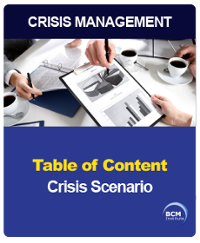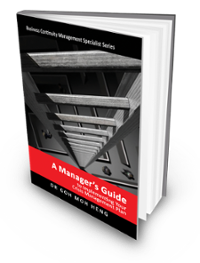Types of Organisational Crisis or Crisis Scenario
 The article lists the myriad types of organisational crises or crisis scenarios businesses may encounter, covering a broad spectrum of events, from adverse government actions to natural disasters and ethical misconduct.
The article lists the myriad types of organisational crises or crisis scenarios businesses may encounter, covering a broad spectrum of events, from adverse government actions to natural disasters and ethical misconduct.
These scenarios encompass various facets of organisational operations, including legal challenges such as lawsuits likely to be publicised or grand jury indictments, as well as operational disruptions like equipment malfunctions or product recalls.
Furthermore, the article explores the complexities of managing crises related to employee conduct, such as allegations of sexual harassment or whistle-blower threats, highlighting the importance of robust crisis management strategies to address internal challenges effectively.
Moreover, the article underscores organisations' need to proactively anticipate and prepare for diverse crisis scenarios, emphasizing inadequate crisis preparedness's potential reputational, financial, and operational implications.
These are examples of organisational crises or crisis scenarios.
 Adverse government actions
Adverse government actions - Anonymous accusations
- Assault of customers
- Bribery
- Competitive misinformation
- Computer tampering
- Confidential data loss or information disclosed
- Copyright infringement
- Counterfeiting
- Damaging rumours
- Discrimination accusations
- Disgruntled employee threats
- Employee death or severe injury
- Employee involved in a scandal
- Equipment, product or service sabotage
- Extortion
- Extortion Threat
- False accusations
- Grand jury indictment
- Grassroots demonstrations
- Hazardous material leak
- Hostile Takeover
- Illegal actions by an employee
- Incorrect installation of equipment
- Indictment of an employee
- Illegal or unethical behaviour of an employee
- Industrial espionage
- Information sabotage
- Investigative reporter contact
- Kidnapping
- Labour problems
- Lawsuit likely to be publicized
- Licensing disputes with local officials
- Major equipment malfunction
- Malicious rumour
- Misuse of chemical products
- Natural disasters that:
- Destroys corporate headquarters
- Destroys organizational office
- Disrupts product/service
- Natural disaster that eliminates key stakeholders
- Nearby neighbour, business protest
- Personnel assault
- Plant Explosion
- Product recall
- Product tampering
- Product/service boycott
- Security leak or problem
- Severe weather impacts on business
- Sexual harassment or allegation
- Special interest group attack
- Strike, job action or work stoppage
- Terrorism threat or action
- Terrorist Attack
- Union organizing actions
- Vehicular fatality
- Whistle-blower threats or actions
- Workplace bombing
- Work-related homicide
Summing Up ...
By categorising and examining each type of crisis scenario, businesses can develop tailored response plans and mitigation strategies to mitigate risks and minimise the impact of crises on their operations and stakeholders.
Ultimately, the content is a comprehensive list of scenarios, which will save time when considering these examples. It is a good resource for organisations seeking to bolster their crisis management capabilities and navigate the complex landscape of organisational crises with resilience and agility.
Do You Want BCM Institute to conduct training courses funded by the Singaporean and Malaysian governments to implement or update your BC or CM plans?
Reference Guide
Goh, M. H. (2016). A Manager’s Guide to Implement Your Crisis Management Plan. Business Continuity Management Specialist Series (1st ed., p. 192). Singapore: GMH Pte Ltd.
Extracted from Appendix 3: Examples of Crisis Types
Find out more about Blended Learning CM-300 [BL-CM-3] & CM-5000 [BL-CM-5]
 |
 |
 |
 |
![TMM [BL-CM-5]](https://no-cache.hubspot.com/cta/default/3893111/54680a64-9914-4958-8cec-1bc451ed5053.png) |
![[BL-CM] [5] Register](https://no-cache.hubspot.com/cta/default/3893111/82024308-16f4-4491-98be-818a882c6286.png) |
 |
Please feel free to send us a note if you have any of these questions to sales.ap@bcm-institute.org |  |





![[BL-3-Catalog] What Specialist Level Blended Learning Courses that are Available?](https://no-cache.hubspot.com/cta/default/3893111/4b22a53c-6e3e-4b9e-8c2a-888423f1d26c.png)
![[BL-5-Catalog] What Expert Level Blended Learning Courses that are Available?](https://no-cache.hubspot.com/cta/default/3893111/fe175db3-7f57-4636-bf09-e9a836aa5478.png)


